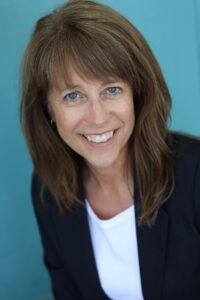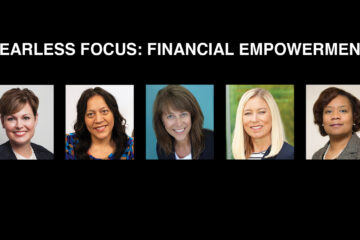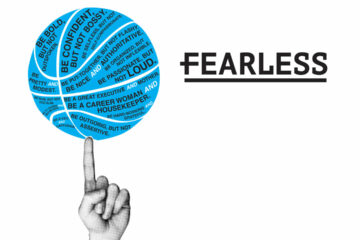No matter their age or income or other circumstances, Iowa women tend to worry about being prepared for retirement.
Other Iowa women are just trying to survive until the next paycheck.

“The long-term goal is retirement. But you’ve got to take small steps to have that healthy retirement that we all want,” said Sonya Sellmeyer, who leads a state government initiative called SmartHER Money. “That might start with budgeting. Maybe who is more financially savvy, maybe they just decide, ‘OK, I need to go talk to a financial professional. I’m at that stage.’ Everyone is on a different stage of that journey. And it is a journey. That’s what we hope SmartHER Money will accomplish, is help any woman on that financial journey wherever they’re at.”
Sellmeyer is the consumer advocate in the Iowa Insurance Division. She and the department commissioned a survey in 2020 to gauge a range of information about women and finances in the state. The findings have helped inform the programming and strategy for SmartHER Money, which is online at smarther.iowa.gov.
In the survey, older Iowans expressed more confidence than younger ones about being financially prepared to retire, and higher-income Iowans similarly were more confident than those with lower incomes. Only about 9% of people with a household income of $50,000 or less said they were confident or very confident about having enough money saved. But even for those making more than $100,000, fewer than half – 41% – said they were confident or very confident.
SmartHER Money exists to try to help improve those numbers, Sellmeyer said: “It’s empowerment, and we’re giving you the resources and tools for free and they’re trusted. We’re not trying to sell you anything.”
The office’s outreach efforts are funded from registration fees paid by brokers and from fines levied by regulators. Sellmeyer has done multiple presentations around the state, and a large conference was held in Cedar Falls in 2022. While women are the focus of SmartHER, Sellmeyer’s job also includes financial-literacy outreach for Iowans of all ages.
She encouraged Iowa women to become more involved in understanding their household’s finances and contributing to decisions. And she said she wants to bring SmartHER Money where it’s needed in whatever format it’s needed to help women feel more informed and assured. “Contact me,” she said. “Throw my contact information out there. I would love to have my phone ringing off the hook. The knowledge doesn’t do any good in here. It’s got to get out there.” (Sonya Sellmeyer can be reached at sonya.sellmeyer@idd.iowa.gov and 515-654-6538.)
Sellmeyer spoke with Fearless this fall about SmartHER Money, what obstacles women cite most commonly and how her own experiences shaped her interest in helping Iowa women in this way. The program was launched in August 2021.
This Q&A has been edited for length and clarity.
Tell me about the origins of the program.
SmartHER Money came out of the fact that, as I was a single mom living paycheck to paycheck, I had to really develop good financial habits. I needed to develop my financial wellness, because I would sit down and do bills every Sunday night after my kids went to bed, and boy, I didn’t sleep much usually on Sunday nights. It just affected me mentally, physically. I’m like, “OK, this has got to change.” I really started working on a budget, started building an emergency fund, just doing some of those foundations that I really credit for helping me today.
When I took this job, I had seen a women’s financial empowerment program out of the state of Georgia called She Leads. I asked to go, and I’m very grateful that I was allowed to attend that seminar. It really empowered every woman in the room. I sat at a table with women who worked in the workforce just like I did. There were also entrepreneurs at my table of all races. It was wonderful. I came out of there and I said, “We ought to do something like this in Iowa.”
Women are more apt to leave the workforce to be a caregiver, whether it’s for a 5-year-old, or for aging parents. I’m very passionate about helping women in the sandwich generation, which is what I’m in. I have two children. I took two maternity leaves. They weren’t all paid. They were partially. But I lost income, not only at that time, but it hurts for that long-term goal, retirement, as well, which is the overall focus of SmartHER Money.
Literally, I got tears in my eyes when I read this: 50% of Iowa women reported their household was financially secure. Only 50%. We’ve got to change that, for many reasons. Like I said, the overall goal here is to have a nice healthy retirement. But, gosh, what are we doing to our health between now and then if only 50% are living in a financially secure household?
When you say health, do you mean financial health, physical health, mental health?
I am our wellness coordinator here at the office, and every last Wednesday of the month I do a newsletter. I’m a strong believer that there are four components to our health. It’s nutrition; physical health, as in movement; financial; and mental. They all play in together. I can’t tell you how many times I’ve overeaten because I’m worried about my finances. Or it’s affected my mental health. Or I don’t exercise that day because I’m too depressed because I’ve got bills to pay. It all blends together. I like the term “financial wellness” so that we can cultivate all of that together to be financially well. There are great statistics about what worrying about your financial health does: how many times a month you call in sick; the lost productivity at work because we are worrying about our finances is huge.
I’d like to hear more about the gender gap and financial literacy. What do you think are some of the causes?
The No. 1 cause – and this is looking at our older female population – is women just didn’t get involved in finances. I think some of that has trickled down. One of our key takeaways in the survey that we did said 40% of women still want to be more involved, specifically younger women and women with lower household incomes, because they say they’re not that involved in the decision-making.
What are some more of the components of SmartHER Money?
We have a website and it is free. There’s all kinds of information on here. There are also free courses that anyone can take. It starts off with how to build a budget, how to buy a first house, all kinds of different stuff. I also do presentations anywhere, to any group size.
I also had a lady over in western Iowa, she was saying how she didn’t have any money. She met with me one-on-one afterward. She’s like, “I just don’t have any money.” I said, “Well, tell me a little bit about your life.” She went to the casinos all the time. And I said, “You know, I understand you have to have entertainment, but let’s take a little bit of that money. Let’s start putting in an emergency fund, even if it’s 10 bucks out of your casino fund, just start somewhere.”
The little habits can become bigger habits and just kind of build on each other?
I’m a huge proponent of emergency funds. Because if you’ve got an emergency fund, then you’re not using that credit card and running up debt. And you’re going to be much better off in the long run.
There are three main foundations, just that getting started: It’s having a budget, having an emergency fund and understanding your credit score – paying off that debt so you’ve got a good credit score, because that credit score follows you around like a little devil on your shoulder all the time. It affects everything you do.
When you talk to women, when you do have these one-on-one situations and you’re able to meet and talk, what are some common things or themes that you hear from women as far as what are the biggest challenges in their financial health right now? I don’t know if that’s maybe a different answer, before or after the pandemic.
I still think it’s the same, to be honest with you. They just don’t know where to go. For me, it was always, “I’m too scared to go to a financial professional. I don’t have any money saved for retirement. How embarrassing is that going to be to go in there? This person doesn’t want to deal with me.” They just don’t know where to go. I think SmartHER Money helps direct people to know where to go depending on their situation. A lot of women just don’t know where to start. It’s overwhelming.
Finances are risky. Especially when you get to that point where you’re investing, because no investments are guaranteed, and that’s risky.
I was very scared to invest in the stock market. I’m still very scared to invest in the stock market. But I know what my risk tolerance is. I won’t invest more than I can lose. I understand what I’m investing in and I make sure that it’s safe for my goals. It all goes back to that education, too. You don’t want to be doing risky behavior if you’re not educated in knowing what you’re doing.
I think it’s all about choice. And I think that you have to be a really good planner to do those kinds of things?
You really hit it. It is about choice. That’s one thing that when I go out and speak to women, I talk about that psychological aspect of money. Why are you buying 500 purses? It’s the choice, right? Think about, where do I want to be when I turn 65, or whatever age you want to retire? What do you want to do? Then make good choices.
There is always that psychological aspect, and this I do think has gotten worse since the pandemic: You get that dopamine hit by ordering stuff off of Amazon. You’re ordering stuff off of Amazon and you might not really need it. It’s fulfilling things that – maybe those needs were met in other places before the pandemic – but you’re spending your money. And so what does that mean for your retirement? I’m not saying you can’t enjoy yourself, you can’t buy nice things. You can’t buy 500 purses. But what is your journey and what are your choices to get there? I just think it’s really important that women understand that psychological aspect, too.
You’re right. I think it is a dopamine hit.
Just in me educating myself, it’s amazing, the growth I’ve had financially. My income really hasn’t gone up that much. It’s just me understanding the choices I was making and how I was spending my money and how to budget better. I like to travel. So I’ve got a travel line in my budget. It has to work for you. That’s the other thing I want women to understand, is whatever financial wellness journey they want to take, it has to be how it works for them. It is no different than a nutritional plan. That is always what I go back to. I know that the Snickers isn’t good for me, but I want it every once in a while. You know, we all know the apple is better, but do we do it? It’s the same concept.
We know that women are doing a lot of parenting. What advice would you have for parents? How can they best prepare their children to be healthy financially, and to do the kind of things that you are teaching through SmartHER Money? Especially girls?
I think parents have got to talk to their kids about money more. I’ve seen a lot of studies lately that said that parents would rather talk to their kids about sex education than money. That really caught my attention. Both are equally important conversations. But I thought that was interesting. This is just my personal opinion: I think a lot of parents have made mistakes, and they don’t want their kids to know about those mistakes. But we’ve got to talk about mistakes so everyone can learn from them.
It’s talking to them about responsible credit usage and credit scores, and how that follows you. Start having your kids, as they start having expenses, develop an emergency fund, especially if they’re driving a car.
It’s just that open communication. Like I said, maybe one good way to start that as parents, as women, is to talk to your children: “Hey, are you talking about financial literacy in the school? Because if you’re not, or if you are, let’s talk about it more.” Because honestly, that’s one of those life skills that’s going to follow you everywhere you go. I hate to say it, but maybe some of the stuff you’re doing in math class, you might not use 10 years from now, but the stuff you’re going to learn financial literacy-wise in whatever class they’re teaching it in, you’re going to use it.


